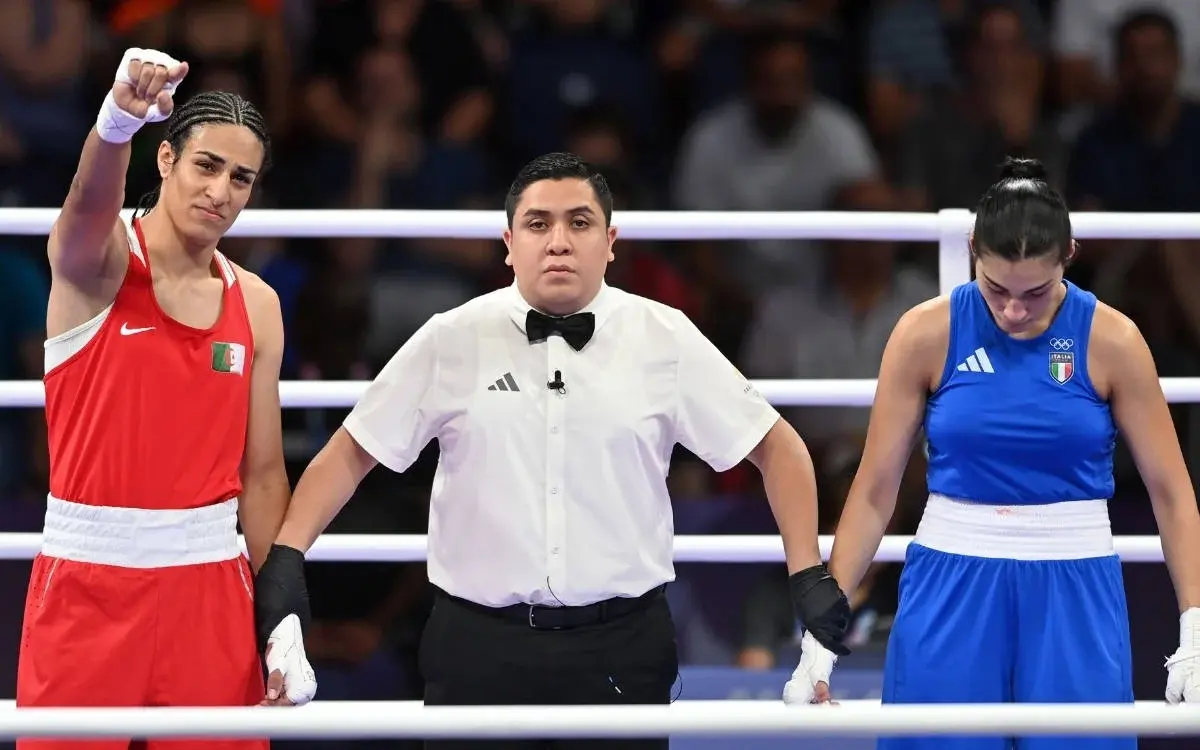Turkey has requested the removal of Algerian boxer Imane Khelif from the upcoming Olympic Games in Paris. The request comes after a transphobic backlash erupted following Khelif's recent victory at the women's 66 kg boxing match, where her Italian opponent, Angela Carini, withdrew 46 seconds into the fight.
Despite her successful career and participation in multiple championships, including the 2020 Tokyo Olympics, Imane Khelif has faced allegations of being a transgender woman. This claim resurfaced after her latest win, despite her Italian rival not putting forward this as a reason for her defeat.
In response to the controversy, Khelif's spokesperson, Rosario Coco, clarified that she is not a transgender woman but an intersex athlete. Coco emphasized that Khelif has always identified and competed as a woman. Algerian media released her childhood photos to counter the transphobic accusations. Intersex people may possess physical characteristics or chromosome patterns that do not fit typical definitions of male or female.
IOC's response
The Turkish Boxing Federation submitted an official request to the International Olympic Committee (IOC) to disqualify Khelif from the games, citing her previous failure in gender conformity tests. Last year, Khelif was disqualified before the gold medal match in the World Championships held in Delhi. This was because of the International Boxing Association’s (IBA) eligibility rules, which bar athletes with XY chromosomes from competing in women’s events.
However, the IOC has rejected Turkey's request, labeling it discriminatory. In a statement, the IOC asserted that all athletes participating in the Paris 2024 Olympics adhere to eligibility requirements established by the Paris 2024 Boxing Unit (PBU) and that competitors' gender and age are verified based on their passports. The committee further stated that sudden disqualifications without due process violate principles of good governance and must be based on scientific evidence.
Khelif could potentially match Turkey’s reigning Olympic champion Busenaz Sürmeneli in the semi finals, if both athletes advance past the quarter-finals.
Eligibility criteria for intersex and trans athletes
The participation of intersex and transgender athletes in the Olympics is governed by guidelines set by the IOC. These regulations consider gender identity and hormone levels, with specific requirements for testosterone levels in both intersex and transgender athletes.
In 2021, the IOC introduced a new framework to make these guidelines more inclusive. Intersex athletes competing in the women's category must maintain testosterone levels below a specified threshold, typically 5 nmol/L, though this can vary by sport federation. Transgender women athletes must demonstrate testosterone levels below 10 nmol/L for at least 12 months before competing. (TY/VK)






